#followahlulbayt
Photo
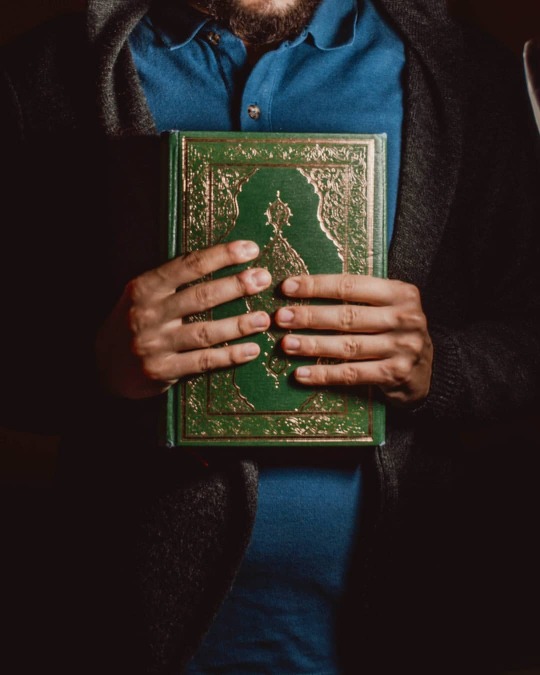
"الثِّقَةُ بِاللَّهِ أَقْوَى أَمَلٍ" "Relying on Allah is the strongest hope" ~Imam Ali (as), Ghurar al-Hikam, p.39 #FollowAhlulbayt #Islam #muslim https://www.instagram.com/p/CPnQ1xejDWW/?utm_medium=tumblr
6 notes
·
View notes
Text
Is there any Merits for Abu bakr being in the cave with Holy Prophet (saw)?
The Prophet (ص) and Abu Bakr spent the night of emigration in the Cave of Thawr to avoid detection. The Qur'an described the events of the cave as follows:
“If you do not aid him, then Allah surely did aid him when those who disbelieve drove him out, and he was the second of the two when they were in the cave when he was saying to his companion, ‘Do not worry (la tahzan), Allah is with us’; Allah sent His serenity upon him, and helped him with troops that cannot be seen, and lowered the word of those who disbelieve, as the Word of Allah is exalted. Allah is mighty, wise.” (Qur'an 9:40)
Some have used this verse as a proof of Abu Bakr’s superiority over the other companions, as he was the Prophet’s (ص) companion in the cave. However, a closer examination of the verse reveals that Allah not only did not praise Abu Bakr, but rather harshly scolded him in this verse.
The beginning of the verse indicates that the Quraysh made only the Prophet (ص) leave, as the reference is in the singular. If they made Abu Bakr leave along with the Prophet (ص), the dual form of the direct object would have been used. This shows that A'isha’s claim that the two of them left together was inaccurate. A'isha’s claim also directly contradicts the accounts of other who said that Abu Bakr set out after the Prophet (ص) when he discovered the latter had left. By setting out after the Prophet (ص) and without proper coordination or planning, Abu Bakr could have easily compromised the secrecy of the Prophet’s (ص) emigration and could have disclosed his location, thereby allowing the pagans of his tribe to kill him and put and end to his prophetic mission.
According to the verse of the cave, “Allah sent His serenity upon him and helped him with troops that cannot be seen.” (9:40) A critical issue here is that serenity was sent only upon one of the two persons in the cave. This is clear from the verse because the singular form of the third person direct object is used instead of the dual form. Had Allah sent His serenity upon both the Prophet (ص) and Abu Bakr, the Qur'an would have used the dual form for the object pronoun. There are two clear reasons why the Prophet (ص) was the one who received serenity and not Abu Bakr. The first is a grammatical one, as every singular pronoun in the verse is referring to the Prophet (ص):
“If you do not aid him (the Prophet), then Allah surely did aid him (the Prophet) when those who disbelieve drove him (the Prophet) out, and he was the second of the two when they were in the cave when he (the Prophet) was saying to his (the Prophet’s) companion, ‘Do not worry (la tahzan), Allah is with us’; Allah sent His serenity upon him (the Prophet) and helped him (the Prophet) with troops that cannot be seen, and lowered the word of those who disbelieve, as the Word of Allah is exalted. Allah is mighty, wise.” (9:40)
It would be grammatically absurd for every single pronoun to refer to the Prophet (ص), except for the object of the serenity. Furthermore, it is clear that the army of angels were sent to help the Prophet (ص) against the pagans who were seeking to kill him, as it would not make sense for Allah to send an army of angels solely to Abu Bakr. Moreover, the verse continues by saying that thanks to the army of angels, the Word of Allah became victorious over the word of disbelievers. Clearly, it was the Prophet (ص) who brought the Word of Allah, not Abu Bakr.
The second reason why Abu Bakr was not the one to receive the serenity is that the Qur'an explained the criteria for receiving serenity. While addressing the Battle of Hunayn in the same surah, the Qur'an says, “So Allah sent down His serenity upon His Messenger and upon the believers, and sent troops that you cannot see, and punished the disbelievers.” (9:26)
This verse is clear that Allah sends His serenity upon two groups – His Messenger – and the believers. Without the serenity of Allah, they would have fear of the enemies of Islam. The verse of the cave, as quoted earlier, clearly indicates that the serenity of Allah was sent down upon only one of the two people in the cave – either the Prophet (ص) or Abu Bakr. This latter verse indicates that Allah sends His serenity only to the Prophet (ص) and the believers. Since Allah’s serenity was sent down as per the verse of the cave, it would have been received by any person who was either a prophet or a believer. As such, the person who received Allah’s serenity was certainly the Prophet (ص) himself and not Abu Bakr. Thus, one can deduce that Abu Bakr did not qualify for the serenity of Allah. The reason Abu Bakr did not qualify was his lack of belief and the fact that he was not a prophet. This concept is proved by yet another verse in which Allah says, “He (Allah) recognized what was in their hearts, so He sent down serenity upon them.” (48:18) This verse shows that Allah grants His serenity only to those who are fit for it and who have a pure heart – that is, the believers, not the hypocrites whose ‘hearts,’ according to the Qur'an, are ’diseased’. (2:10) Again, as per the verse of the cave, only one person in the cave received Allah’s serenity. So one needs to ask the question: Who had a heart pure enough to qualify him to receive Allah’s serenity –the Prophet (ص) or Abu Bakr? Indeed, in another verse, Allah says,
“While those who disbelieved were setting up fanaticism – the fanaticism of the Days of Ignorance – in their own hearts, Allah sent His serenity down upon His Messenger and upon the believers, and necessitated for them to respect the word of piety. They were truer and more deserving of it. Allah is aware of everything!” (48:26)
Again, the Qur'an indicates that this divine serenity is sent to those who are deserving of it. The only question is whether the Prophet (ص) was more deserving of it or whether Abu Bakr was, the only one of the two of them actually received Allah’s serenity according to the verse of the cave.
Yet another verse says, “He is the One Who sends down serenity on the believers’ hearts so they may add belief (iman) to the belief (iman) they already have.” (48:4) This verse also indicates that serenity is only sent to the hearts of the believers and results in an increase in their belief. Thus, the reason Abu Bakr did not receive serenity in the cave would be because he lacked belief (iman).
A key point in the verse of the cave is that Abu Bakr was so worried about and fearful of the potential congregation of the Quraysh against them that the Prophet (ص) had to tell him to stop worrying. Yet, the Qur'an describes the attitude of believers when confronted by overwhelming odds as follows:
“Those whom people have told, 'The people have gathered to oppose you, so be wary of them!’ yet this increased their belief and they said, 'Suffices for us Allah, a splendid disposer of affairs!” (3:173)
It appears that the attitude described here was not the attitude of Abu Bakr in the cave. Rather, this verse accurately describes the attitude of Ali on that night when he was, in fact, in much greater danger than Abu Bakr was in.
According to the verse of the cave, “He (i.e. the Prophet) was saying to his companion (i.e. Abu Bakr), 'Do not worry, Allah is with us (ma'ana).” (9:40) In an attempt to salvage some virtue for Abu Bakr out of this verse, some have claimed that the Prophet’s (ص) telling Abu Bakr, “Allah is with us” proves a special virtue for Abu Bakr that others do not share.
However, the Qur'an refutes such a claim, making it evident that Allah is with everyone and in every gathering when it says, “Three cannot have a private conversation without Him being the fourth of them, and five cannot talk without Him being the sixth; and neither less than this nor more can meet without Him being among them (ma'ahum) wherever they are.” (58:7)
Therefore, the Prophet’s (ص) statement to Abu Bakr that Allah was with them was merely a statement of fact and not a statement of praise for Abu Bakr.
Some also use this verse to claim that the reference of Abu Bakr as the companion or “sahib” of the Prophet (ص) is a special quality granted to him by Allah, as the verse reads, “He (the Prophet) was saying to his companion (Abu Bakr), 'Do not worry, Allah is with us.’” (9:40) However, the Qur'an refutes the notion of companionship implying a virtue where it says –
“His companion (sahib – the believer) told him (the disbeliever) during an argument, 'Do you disbelieve in Him Who created you from dirt then from a sperm drop and then made you into a man?” (18:37)
According to this verse, a companion or sahib does not necessarily share one’s beliefs, and that the companion of a believer may be one who does not even believe in the existence of a creator. Thus, the Qur'anic reference to Abu Bakr’s being a companion of the Prophet (ص) implies absolutely no particular virtue for him according to the Qur'an.
[ Shia Islam: Proofs from the Qur'an, Sunnah, and History p. 49-53 ]
followahlulbayt:
[The Verse of the Cave Proves Abu Bakr ibn Quhafah’s Lack of Faith]
The Prophet (ص) and Abu Bakr spent the night of emigration in the Cave of Thawr to avoid detection. The Qur'an described the events of the cave as follows:
“If you do not aid him, then Allah surely did aid him when those who disbelieve drove him out, and he was the second of the two when they were in the cave when he was saying to his companion, ‘Do not worry (la tahzan), Allah is with us’; Allah sent His serenity upon him, and helped him with troops that cannot be seen, and lowered the word of those who disbelieve, as the Word of Allah is exalted. Allah is mighty, wise.” (Qur'an 9:40)
Some have used this verse as a proof of Abu Bakr’s superiority over the other companions, as he was the Prophet’s (ص) companion in the cave. However, a closer examination of the verse reveals that Allah not only did not praise Abu Bakr, but rather harshly scolded him in this verse.
The beginning of the verse indicates that the Quraysh made only the Prophet (ص) leave, as the reference is in the singular. If they made Abu Bakr leave along with the Prophet (ص), the dual form of the direct object would have been used. This shows that A'isha’s claim that the two of them left together was inaccurate. A'isha’s claim also directly contradicts the accounts of other who said that Abu Bakr set out after the Prophet (ص) when he discovered the latter had left. By setting out after the Prophet (ص) and without proper coordination or planning, Abu Bakr could have easily compromised the secrecy of the Prophet’s (ص) emigration and could have disclosed his location, thereby allowing the pagans of his tribe to kill him and put and end to his prophetic mission.
According to the verse of the cave, “Allah sent His serenity upon him and helped him with troops that cannot be seen.” (9:40)
A critical issue here is that serenity was sent only upon one of the two persons in the cave. This is clear from the verse because the singular form of the third person direct object is used instead of the dual form. Had Allah sent His serenity upon both the Prophet (ص) and Abu Bakr, the Qur'an would have used the dual form for the object pronoun.
There are two clear reasons why the Prophet (ص) was the one who received serenity and not Abu Bakr. The first is a grammatical one, as every singular pronoun in the verse is referring to the Prophet (ص):
“If you do not aid him (the Prophet), then Allah surely did aid him (the Prophet) when those who disbelieve drove him (the Prophet) out, and he was the second of the two when they were in the cave when he (the Prophet) was saying to his (the Prophet’s) companion, ‘Do not worry (la tahzan), Allah is with us’; Allah sent His serenity upon him (the Prophet) and helped him (the Prophet) with troops that cannot be seen, and lowered the word of those who disbelieve, as the Word of Allah is exalted. Allah is mighty, wise.” (9:40)
It would be grammatically absurd for every single pronoun to refer to the Prophet (ص), except for the object of the serenity.
Furthermore, it is clear that the army of angels were sent to help the Prophet (ص) against the pagans who were seeking to kill him, as it would not make sense for Allah to send an army of angels solely to Abu Bakr. Moreover, the verse continues by saying that thanks to the army of angels, the Word of Allah became victorious over the word of disbelievers. Clearly, it was the Prophet (ص) who brought the Word of Allah, not Abu Bakr.
The second reason why Abu Bakr was not the one to receive the serenity is that the Qur'an explained the criteria for receiving serenity. While addressing the Battle of Hunayn in the same surah, the Qur'an says,
“So Allah sent down His serenity upon His Messenger and upon the believers, and sent troops that you cannot see, and punished the disbelievers.” (9:26)
This verse is clear that Allah sends His serenity upon two groups – His Messenger – and the believers. Without the serenity of Allah, they would have fear of the enemies of Islam. The verse of the cave, as quoted earlier, clearly indicates that the serenity of Allah was sent down upon only one of the two people in the cave – either the Prophet (ص) or Abu Bakr.
This latter verse indicates that Allah sends His serenity only to the Prophet (ص) and the believers. Since Allah’s serenity was sent down as per the verse of the cave, it would have been received by any person who was either a prophet or a believer. As such, the person who received Allah’s serenity was certainly the Prophet (ص) himself and not Abu Bakr.
Thus, one can deduce that Abu Bakr did not qualify for the serenity of Allah. The reason Abu Bakr did not qualify was his lack of belief and the fact that he was not a prophet.
This concept is proved by yet another verse in which Allah says, “He (Allah) recognized what was in their hearts, so He sent down serenity upon them.” (48:18)
This verse shows that Allah grants His serenity only to those who are fit for it and who have a pure heart – that is, the believers, not the hypocrites whose ‘hearts,’ according to the Qur'an, are ’diseased’. (2:10)
Again, as per the verse of the cave, only one person in the cave received Allah’s serenity. So one needs to ask the question: Who had a heart pure enough to qualify him to receive Allah’s serenity –the Prophet (ص) or Abu Bakr? Indeed, in another verse, Allah says,
“While those who disbelieved were setting up fanaticism – the fanaticism of the Days of Ignorance – in their own hearts, Allah sent His serenity down upon His Messenger and upon the believers, and necessitated for them to respect the word of piety. They were truer and more deserving of it. Allah is aware of everything!” (48:26)
Again, the Qur'an indicates that this divine serenity is sent to those who are deserving of it.
The only question is whether the Prophet (ص) was more deserving of it or whether Abu Bakr was, the only one of the two of them actually received Allah’s serenity according to the verse of the cave.
Yet another verse says, “He is the One Who sends down serenity on the believers’ hearts so they may add belief (iman) to the belief (iman) they already have.” (48:4)
This verse also indicates that serenity is only sent to the hearts of the believers and results in an increase in their belief. Thus, the reason Abu Bakr did not receive serenity in the cave would be because he lacked belief (iman).
A key point in the verse of the cave is that Abu Bakr was so worried about and fearful of the potential congregation of the Quraysh against them that the Prophet (ص) had to tell him to stop worrying. Yet, the Qur'an describes the attitude of believers when confronted by overwhelming odds as follows:
“Those whom people have told, 'The people have gathered to oppose you, so be wary of them!’ yet this increased their belief and they said, 'Suffices for us Allah, a splendid disposer of affairs!” (3:173)
It appears that the attitude described here was not the attitude of Abu Bakr in the cave. Rather, this verse accurately describes the attitude of Ali on that night when he was, in fact, in much greater danger than Abu Bakr was in.
According to the verse of the cave, “He (i.e. the Prophet) was saying to his companion (i.e. Abu Bakr), 'Do not worry, Allah is with us (ma'ana).” (9:40)
In an attempt to salvage some virtue for Abu Bakr out of this verse, some have claimed that the Prophet’s (ص) telling Abu Bakr, “Allah is with us” proves a special virtue for Abu Bakr that others do not share.
However, the Qur'an refutes such a claim, making it evident that Allah is with everyone and in every gathering when it says, “Three cannot have a private conversation without Him being the fourth of them, and five cannot talk without Him being the sixth; and neither less than this nor more can meet without Him being among them (ma'ahum) wherever they are.” (58:7)
Therefore, the Prophet’s (ص) statement to Abu Bakr that Allah was with them was merely a statement of fact and not a statement of praise for Abu Bakr.
Some also use this verse to claim that the reference of Abu Bakr as the companion or “sahib” of the Prophet (ص) is a special quality granted to him by Allah, as the verse reads, “He (the Prophet) was saying to his companion (Abu Bakr), 'Do not worry, Allah is with us.’” (9:40)
However, the Qur'an refutes the notion of companionship implying a virtue where it says –
“His companion (sahib – the believer) told him (the disbeliever) during an argument, 'Do you disbelieve in Him Who created you from dirt then from a sperm drop and then made you into a man?” (18:37)
According to this verse, a companion or sahib does not necessarily share one’s beliefs, and that the companion of a believer may be one who does not even believe in the existence of a creator. Thus, the Qur'anic reference to Abu Bakr’s being a companion of the Prophet (ص) implies absolutely no particular virtue for him according to the Qur'an.
[ Shia Islam: Proofs from the Qur'an, Sunnah, and History p. 49-53
7 notes
·
View notes
Photo
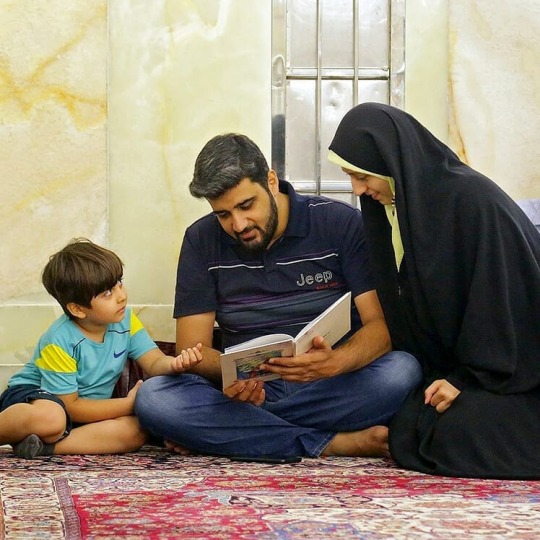
"The residents of the planet Earth will receive divine blessings as long as they love each other, act righteously, and honor what they are entrusted with." - Imam Musa Kadhim (AS), Mishkat ul-Anwar Fi Ghurar il-Akhbar #imamkadhim #ahlulbayt #hadith #followahlulbayt (at Mashhad, Iran) https://www.instagram.com/p/CAppAC8D8M1/?igshid=qfv81pe6loqq
22 notes
·
View notes
Photo
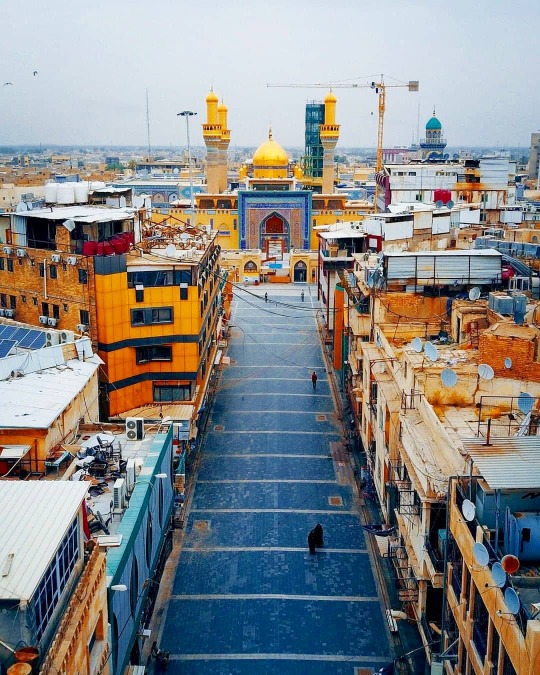
أللَّهُمَّ صَلِّ عَلَى مُحَمَّد وَآلِهِ، وَأَلْبِسْنِي عَافِيَتَكَ، وَجَلِّلْنِي عَـافِيَتَكَ، وَحَصِّنِّي بِعَـافِيَتِـكَ، وَأكْـرِمْنِي بِعَافِيَتِكَ، وَأغْنِنِي بِعَافِيَتِكَ، وَتَصَدَّقْ عَلَيَّ بِعَافِيَتِكَ، وَهَبْ لِي عَافِيَتَكَ، وَأَفْرِشْنِي عَافِيَتَكَ، وَأَصْلِحْ لِي عَافِيَتَكَ، وَلا تُفَرِّقْ بَيْنِي وَبَيْنَ عَافِيَتِكَ فِي الدُّنْيَا وَالاخِرَةِ. #قناة_الجوادين #العتبة_الكاظمية_المقدسة #ياطبيب_بغداد #جود_الجوادين #لبيك_سيدعلي #followahlulbayt (at Al Kadhimain, Baghdad, Iraq) https://www.instagram.com/p/CCiQ8WjDzDd/?igshid=vt1pktmq5146
12 notes
·
View notes
Photo
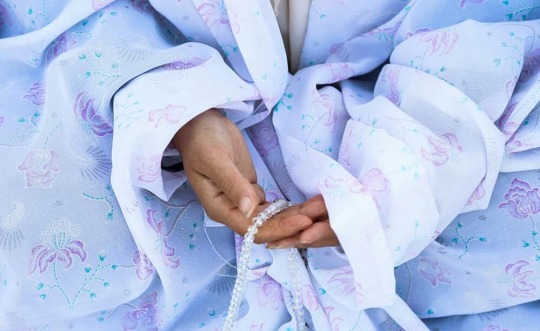
"There is nothing more beloved to Allah than the performance of an action that is maintained regularly, even if it be little." - Imam al-Baqir (a.s), al-Kafi, v. 2, p. 82, no. 3 #ImamBaqir #hadith #ahlulbayt #alkafi #followahlulbayt https://www.instagram.com/p/CApUZj-j0L6/?igshid=krhr47wrp6e
18 notes
·
View notes
Photo

دعاء التوسل | التوسل بالإمام الحسن المجتبى (عليه السلام) يا أبا مُحَمَّدٍ يا حَسَنَ بْن عَلِيٍّ أَيُّها المُجْتَبى يا أبْنَ رَسُولِ الله يا حُجَّةَ الله عَلى خَلْقِهِ يا سَيِّدَنا وَمَوْلاَنا، إنَّا تَوَجَّهْنا وَاسْتَشْفَعْنا وَتَوَسَّلْنا بِكَ إِلى اللهِ، وَقَدَّمْناكَ بَيْنَ يَدَيْ حاجاتِنا، يا وَجِيهاً عِنْدَ الله إشْفَعْ لَنا عِنْدَ اللهِ. #rebuildbaqee #followahlulbayt (at Al-Baqi') https://www.instagram.com/p/CA5kI7AjsD8/?igshid=co2w6xeg5ov0
16 notes
·
View notes
Photo

هذه الشيبه مؤمنه بأن النار لا تمس جسماً.....عليه غبار زوار الحسين (ع) فكيف بتراب وطأته اقدامهم، فقام بجمع ذلك التراب من خلال رحلته من بقاع شتى ..ولقد أخلص في الولاء وقلبه يخفق وروحه جزعة متلهفة، وأُذناه ينساب إليها صدى هتاف اسمه، لبيك يا حسين، ليكمل مسيرته ورحلته نحو قبلة العاشقين... #ياحسين #كربلاء #العباس #العباس_عليه_السلام #عاشوراء #العتبة_الحسينية_المقدسة #كربلاء_المقدسة #العتبة_الرضوية_المقدسة #العتبة_العلوية_المقدسة #حسينيون #ياحسين💔 #لبيك_ياحسين #كربلاء_المقدسه #الحسين_يوحدنا #الحسين_يجمعنا #الحسين_ثورة #كربلاء_عشقي #زيارة_الاربعين #العباس #اكسبلور #followahlulbayt #arbaeen1442 https://www.instagram.com/p/CFzt_JDDx2E/?igshid=cpl3s87agvqn
#ياحسين#كربلاء#العباس#العباس_عليه_السلام#عاشوراء#العتبة_الحسينية_المقدسة#كربلاء_المقدسة#العتبة_الرضوية_المقدسة#العتبة_العلوية_المقدسة#حسينيون#ياحسين💔#لبيك_ياحسين#كربلاء_المقدسه#الحسين_يوحدنا#الحسين_يجمعنا#الحسين_ثورة#كربلاء_عشقي#زيارة_الاربعين#اكسبلور#followahlulbayt#arbaeen1442
3 notes
·
View notes
Photo

من أدعية الصحيفة السجادية أللَّهُمَّ صَلِّ عَلَى مُحَمَّد وَآلِهِ، وَعَافِنِي عَافِيَةً كَافِيَةً شَافِيَةً عَالِيَةً نَامِيةً، عَافِيَةً تُوَلِّدُ فِي بَدَنِي الْعَافِيَةَ، عَافِيَةَ الدُّنْيَا والاخِرَةِ، وَامْنُنْ عَلَيَّ بِالصِّحَّةِ وَالامْنِ وَالسَّلاَمَةِ فِي دِيْنِي وَبَـدَنِي، وَالْبَصِيـرَةِ فِي قَلْبِي وَالنَّفَاذِ فِي أمُورِيْ وَالْخَشْيَةِ لَكَ، وَالْخَوْفِ مِنْكَ وَالْقُوَّةِ عَلَى مَا أَمَرْتَنِي بِهِ مِنْ طَاعَتِكَ وَالاجْتِنَابِ لِمَـا نَهَيْتَنِي عَنْهُ مِنْ مَعْصِيَتِـكَ. #قناة_الجوادين #العتبة_الكاظمية_المقدسة #ياطبيب_بغداد #جود_الجوادين ️ #لبيك_سيدعلي #فهذا_علي_مولاه #followahlulbayt (at Al Kadhimain, Baghdad, Iraq) https://www.instagram.com/p/CDqtkwMDHZs/?igshid=476ftx9mls3k
#قناة_الجوادين#العتبة_الكاظمية_المقدسة#ياطبيب_بغداد#جود_الجوادين#لبيك_سيدعلي#فهذا_علي_مولاه#followahlulbayt
5 notes
·
View notes
Photo

الانتهاء من استعدادات الحرم الحسيني المقدس لإستقبال شهر محرم الحرام 1442 #وجاء_محرم #التزامكم_طاعتكم_لمرجعيتكم #سلامتكم_غالية #وباء_كورونا #محرم_1442 #followahlulbayt (at مرقد الأمام الحسين ، كربلاء المقدسة) https://www.instagram.com/p/CEGtHbBjQ8u/?igshid=132d7dxwred2y
4 notes
·
View notes
Video
Believers Inside Sayyeda Zainab Holy Shrine. #Yazainab #Damascus #Karbala #Imamhussain #Imamali #Ahlulbayt #Shia #Islam #Iraq #iran #Imamreza #Yahussain #followahlulbayt #الإمام_الحسين #امام_حسین #امام_رضا #كربلاء #كربلا #بين_الحرمين #ياعلي #نجف #ابا_الفضل #الامام_علي #العتبة_الزينبية_المقدسة #محرم_الحرام #العتبه_الحسينيه #ياحسين #يازينب #كربلاء_المقدسة #يازينب (at Lady Zainab Holy Shrine مرقد السيدة زينب) https://www.instagram.com/p/CAzx1oNHCC4/?igshid=ihcr4uxbjel
#yazainab#damascus#karbala#imamhussain#imamali#ahlulbayt#shia#islam#iraq#iran#imamreza#yahussain#followahlulbayt#الإمام_الحسين#امام_حسین#امام_رضا#كربلاء#كربلا#بين_الحرمين#ياعلي#نجف#ابا_الفضل#الامام_علي#العتبة_الزينبية_المقدسة#محرم_الحرام#العتبه_الحسينيه#ياحسين#يازينب#كربلاء_المقدسة
9 notes
·
View notes
Photo
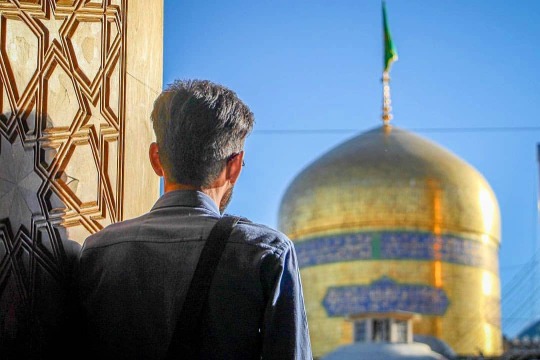
Peace be upon you, O Allah’s authority and son of His authority. #followahlulbayt #ahlulbayt #pilgrim #instaislam #imamrezashrine #iran #mashhad #ziyarat #ahlulbait #razawiwednesday #subhanallah #islampost #حرم_امام_رضا #امام_رضا (at Mashhad, Iran) https://www.instagram.com/p/CBpbOREjJPT/?igshid=6ar4it493vpb
#followahlulbayt#ahlulbayt#pilgrim#instaislam#imamrezashrine#iran#mashhad#ziyarat#ahlulbait#razawiwednesday#subhanallah#islampost#حرم_امام_رضا#امام_رضا
7 notes
·
View notes
Photo

استعدادات الحرم الحسيني المقدس لإستقبال شهر الأحزان محرم الحرام 1442 #وجاء_محرم #التزامكم_طاعتكم_لمرجعيتكم #سلامتكم_غالية #وباء_كورونا #محرم_1442 #كربلاء_المقدسة #followahlulbayt (at Karbala') https://www.instagram.com/p/CD_-XOdj2KV/?igshid=h01u9cjt5y02
#وجاء_محرم#التزامكم_طاعتكم_لمرجعيتكم#سلامتكم_غالية#وباء_كورونا#محرم_1442#كربلاء_المقدسة#followahlulbayt
3 notes
·
View notes
Photo
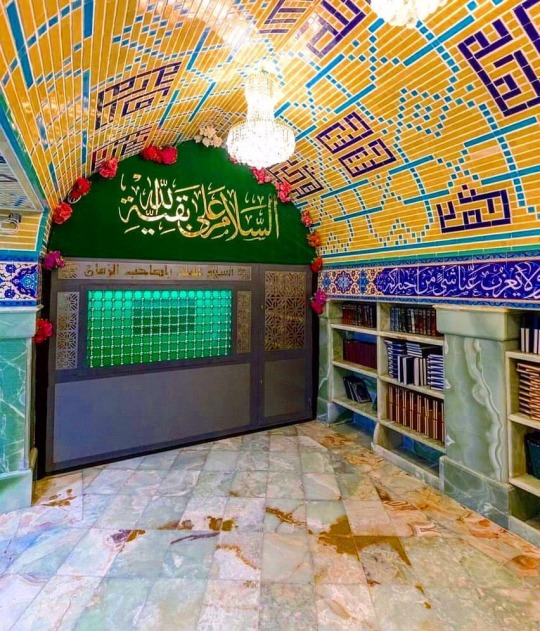
أَللَّهُمَّ ثَبِّتْنِي عَلى دِينِكَ ما أَحْيَيْتَنِي، وَلا تُزِغْ قَلْبِي بَعْدَ إذْ هَدَيْتَنِي، وَهَبْ لِي مِنْ لَدُنْكَ رَحْمَةً، إنَّكَ أَنْتَ الْوَهَّابُ، صَلِّ عَلَى مُحَمَّد وَآلِ مُحَمَّد وَاجْعَلْنِي مِنْ أَتْباعِهِ وَشِيعَتِهِ وَاحْشُرْنِي فِي زُمْرَتِهِ وَوَفِّقْنِي لاَداءِ فَرْضِ الْجُمُعاتِ، وَما أَوْجَبْتَ عَلَيَّ فِيها مِنَ الطَّاعاتِ، وَقَسَمْتَ لِاَهْلِها مِنَ الْعَطآءِ فِي يَوْمِ الْجَزآءِ، إنَّكَ أَنْتَ الْعَزِيزُ الْحَكِيمُ. #الأمان_الأمان #العسكري_امان_للجانبين #من_بيت_صاحب_الزمان #اللهم_عجل_لولیک_الفرج #سامراء_المقدسة #لدفع_الوباء #followahlulbayt (at Samarra') https://www.instagram.com/p/CBEWldUDsF5/?igshid=sjtoznjflnvz
#الأمان_الأمان#العسكري_امان_للجانبين#من_بيت_صاحب_الزمان#اللهم_عجل_لولیک_الفرج#سامراء_المقدسة#لدفع_الوباء#followahlulbayt
6 notes
·
View notes
Photo

((اللّهُمَّ إنّي أسألُكَ العافِيَةَ، وأسألُكَ جَميلَ العافيَةِ، وأسألُكَ شُكرَ العافيَةِ، وأسألُكَ شُكرَ شُكرِ العافيَةِ)). #قناة_الجوادين #العتبة_الكاظمية_المقدسة #ياطبيب_بغداد #جود_الجوادين #لبيك_سيدعلي #followahlulbayt (at Al Kadhimain, Baghdad, Iraq) https://www.instagram.com/p/CCk_fHtjMby/?igshid=obvxfvynw599
3 notes
·
View notes
Photo
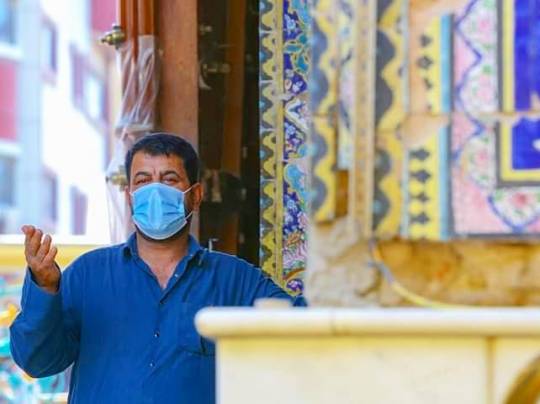
وَأَشْهَدُ أَنَّكُمْ الأَئِمَّةِ الرَّاشِدُونَ المَهْدِيُّونَ المَعْصُومُونَ المُكَرَّمُونَ المُقَرَّبُونَ المُتَّقُونَ الصَّادِقُونَ المُصْطَفَوْنَ المُطِيعُونَ للهِ القَوَّامُونَ بِأَمْرِهِ العامِلُونَ بِإِرادَتِهِ الفائِزُونَ بِكَرامَتِهِ.. #قناة_الجوادين #العتبة_الكاظمية_المقدسة #ياطبيب_بغداد #جود_الجوادين #لبيك_سيدعلي #followahlulbayt (at Kadhimiyah) https://www.instagram.com/p/CCF4EbPjfN-/?igshid=9k1m3c9ae665
2 notes
·
View notes
Photo

They broke your Ribs, Then your Grave 😭😭😭 #rebuild_al_baqi #jannatalbaqi #rebuildbaqee #followahlulbayt #yafatima (at Al-Baqi') https://www.instagram.com/p/CA3kV2ZDseH/?igshid=bzkfdu9rcv61
2 notes
·
View notes